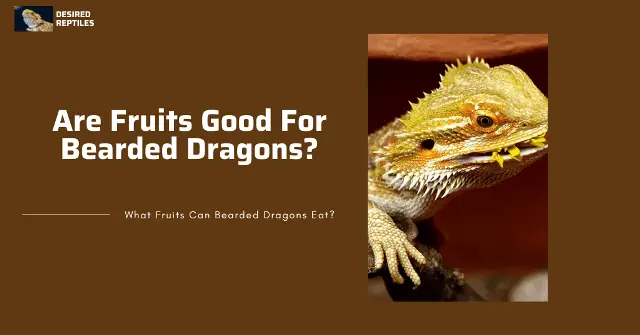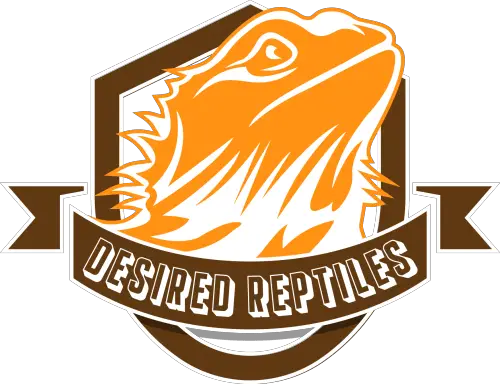Did you know that avocados are lethal to your beardie’s health? It could leave you wondering just what other kinds of fruits are bad for them and why. Although beardies are omnivores, there are still some bugs or plants that are harmful to them and in some cases, fatal. In their natural habitat, fruits are a scarce commodity to find and are mostly absent from their diet. This is why it’s more of a delicacy or a vitamin boost than an actual meal.
Bearded dragons can only eat low-acidity, low-oxalate, and persin-free fruits in minimal amounts over time. They may consume a safe quantity as it’s proven to improve their metabolism, but don’t particularly need them to survive. In excess, fruits could lead to negative outcomes such as an illness or death.
I’ll be discussing the safest fruits to feed your beardie and those you must avoid so that you have the best knowledge on how to improve or protect your pet’s lifestyle with delicacies.
The Types Of Fruit Bearded Dragons Should And Shouldn’t Eat
| SAFE ZONE FRUITS | DANGER ZONE FRUITS |
|---|---|
| Blackberry | Avocado |
| Blueberry | Lemon |
| Apple | Lime |
| Banana | Rangpur |
| Strawberry | Tangelo |
| Peach | Passion fruit |
| Mango | Calamansi |
| Papaya | Grapefruit |
| Fig | Kiwi |
| Prickly pear | Raspberries |
The “Safe Zone” Fruits For Bearded Dragons
Fruits are like healthy treats and medicine for bearded dragons. They might not need them in their daily diet, but there are many times they come in handy. One of those cases is observed by a sick, recovering, or injured beardie where the cells need assistance to rejuvenate. In this case, Vitamin C and other antioxidants found in fruits can help to hasten the process by improving immunity and fighting against toxins.
The fruits under this category are of low acidity, high sugar with minimal moisture content, and are the perfect fit for bearded dragons.
- Blackberry
- Blueberry
- Apple
- Banana
- Strawberry
- Peach
- Mango
- Papaya
- Fig
- Prickly pear
In addition to the benefits, the sugar content will keep your dragon responsive and energized especially for recovering and laying females before or after they have plopped their eggs.
The “Danger Zone” Fruits For Bearded Dragons
Bearded dragons have a strict but simple diet to follow. When it has to do with fruits, it gets even more complicated. High-acidity, oxalate-rich, and persin-abundant fruits are a capital NO for dragons, and I’ll explain why.
High-Acidity Fruits
When humans consume fruits with high levels of acidity like citruses, our gastrointestinal tract is equipped with the proper mechanism to manage them. In fact, our natural stomach juices can match the acidity of citrus fruits so they don’t pose any threat to us.
In addition to this, vitamin C is highly regulated in the human body and can be readily excreted due to its solubility; the opposite is found in bearded dragons. They are not equipped with the correct system or proper enzymes to break down such levels of vitamin C and are insufficiently hydrated to properly dilute or excrete the substance which is where the problem starts.
The consequences of accumulated vitamin C from the intake of citric fruits by your bearded dragon lead to diarrhea, stomach ulcers, excessive dehydration, and body weakness.
6 examples of high-acidity fruits that are harmful to bearded dragons:
- Lemons
- Limes
- Rangpur
- Tangelo
- Passion fruits
- Calamansi
Oxalate-Rich Fruits
Oxalic acid is a substance found in some fruits and vegetables that has a high affinity for calcium, which just so happens to be one of the most important minerals your bearded dragon needs. This means that instead of the calcium being metabolized by your beardie, the oxalate binds to it instead and forms a stubborn insoluble compound. It is highly poisonous to your beardie and can easily lead to death after a few minutes of consumption.
Bearded dragons lack the gut bacteria needed to break down oxalic acid. If accumulated, it could lead to acute poisoning, metabolic bone disease, kidney problems, respiratory complications, and death.
3 examples of oxalate-rich fruits that are harmful to your bearded dragon:
- Grapefruit
- Kiwifruit
- Raspberries
If your beardie accidentally consumes any of these fruits in excess, immediately feed your dragon calcium-rich foods or calcium supplements. Calcium readily binds to oxalate, and will eventually attenuate the consequences. However, ensure you rush to the veterinary doctor for a proper check-up.
Persin-Abundant Fruits
Persin is a highly toxic fungicide capable of inflicting fatal outcomes on your pet and I simply cannot overemphasize the dangers of a beardie eating it. First, it triggers the bearded dragon’s immune system upon ingestion which immediately leads to removing the substance through serious vomiting and diarrhea.
Now, we all know a beardie is not the most hydrated animal there is, and that’s where the issue resides. Once persin is consumed and excreted by a bearded dragon, severe dehydration settles in followed by respiratory and nervous problems, and then finally, death. Avocados contain fatal amounts of the toxin that even in small amounts could painfully end your dragon in minutes. So, keep your dear pet away from the skin, seeds, or flesh of avocados entirely.
If an accident has occurred where avocado has been consumed by your beardie, immediately get it hydrated to give it a better chance at excreting the substance. Understand that this is a first aid measure, and the best chance you have at saving your bearded dragon is making a bee dive to the vet!

How Much Fruit Should I Feed My Bearded Dragon?
Bearded dragons shouldn’t get more than 10% to 20% of fruits in their diet. At most, 5 bites that measure the distance between their eyes once a week should do it. Too much fruit could lead to obesity and other complications that would be painful to endure. Since it’s not a huge necessity, it’s better to keep their diet as simple as possible.
Also, bear in mind that since all bearded dragons have distinct personalities, intensifying their likes and dislikes, they certainly wouldn’t all like the same kind of fruit. Some beardies don’t even fancy fruits at all! However, the ones that do, tend to gravitate toward reddish fruits more than the other kinds.
If feeding your dragon their regular nutritious diet costs an arm and leg daily, one trick is to sprinkle pieces of their favorite fruit on their greens before they feed. They may not happily gobble it all up, but they will fall for your trick and munch on a few veggies.

Should Bearded Dragons Eat Fruits At All?
Fruits can be either nutritious or fatal to bearded dragons. These extremes depend on the content and the amount your pet is being fed. They more or less serve the role of a multivitamin or an extremely healthy once-in-a-while snack. So, bearded dragons should only eat certain fruits as a delicacy and not a staple dietary item.
In light of this, you must adhere to the types of fruits to feed your pet. Some of them contain chemicals that will disrupt your beardie’s well-being or kill them within a few minutes depending on how much they consume.
This is why I have separated the “safe” from the “dangerous” fruits to further help you understand which ones to feed your bearded dragon.
Frequently Asked Questions
Do bearded dragons like fruit?
Some beardies do enjoy the sweetness and juiciness of fruits, and may even look forward to eating them. However, some do not care too much about them and would prefer their regular grubs and greens. Try to explore the variety as much as possible so that your pet can figure out which fruit it prefers to eat.
Are fruits essential to bearded dragons?
Fruits are not essential to beardies. Remember that essential vitamins are needed by the body and cannot be synthesized. So, they have to be consumed. Bearded dragons can make do with the vitamins gotten from their diet to stay healthy, even without eating fruits. Regardless, they are highly nutritious and can boost your pet’s health when fed suitably.
Are fruits safe for baby dragons?
Baby dragons can digest fruits the same way adult bearded dragons can. Although the same method of issuance complies, be sure to administer the right sizes to prevent asphyxiation. The fruits should be diced to fit into the spaces between their eyes.
